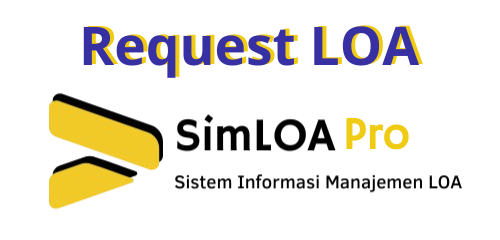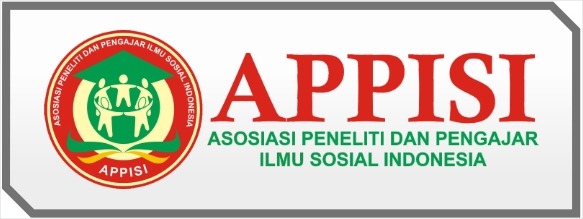Doing Thesis While Working Part Time, Why Not? A Case Study of Self-Efficacy in College Students
DOI:
https://doi.org/10.61994/jpss.v3i1.912Keywords:
College Students , Final Year Students , Part-Time Students , Self-EfficacyAbstract
Many individuals fail to achieve their goals because of their low self-efficacy. This research was initiated from a case that many researchers found in the surrounding environment, especially the campus environment. Researchers often meet students who do part-time jobs in between their activities as students. This phenomenon makes researchers interested in conducting research on students who work part-time during the thesis preparation period to see how the student's self-efficacy is. The research then uses a qualitative approach with a case study method, with the subject collection technique using purposive sampling technique, with data collection using interviews. The results showed that the subject under study was able to achieve all aspects of self-efficacy. The subjects succeeded in motivating and convincing themselves that they could by managing their time well, not giving up easily and being confident that they would graduate even with a busy schedule. And find a way to get up and succeed in completing their assignments.
References
Anderson, R. C., & Haney, M. (2021). Reflection in the creative process of early adolescents: The mediating roles of creative metacognition, self-efficacy, and self-concept. Psychology of Aesthetics, Creativity, and the Arts, 15(4), 612. https://doi.org/10.1037/aca0000324
Bandura, A. (1994). Self Efficacy. In V. S. Ramachaudran (Ed.), Encyclopedia of human behavior (Vol. 4, 77-81). New York: Academic Press
Bandura, A. (1997). Self Eflicacy. The Exercise of Control, New York: W H. Freeman & Co. Student Success, 333, 48461. https://doi.org/10.1891/0889-8391.13.2.158
Baron, R. A., & Bryne, D. E. (2004). Social Psychology (10th ed). USA: Pearson.
Burnette, J. L., Pollack, J. M., Forsyth, R. B., Hoyt, C. L., Babij, A. D., Thomas, F. N., & Coy, A. E. (2020). A Growth Mindset Intervention: Enhancing Students’ Entrepreneurial Self-Efficacy and Career Development. Entrepreneurship Theory and Practice, 44(5), 878–908. https://doi.org/10.1177/1042258719864293
Creswell. (2015). Riset Perencanaan, dan evaluasi riset kualitatif dan kuantitatif Pendidikan. Yogyakarta: Pustaka Pelajar.
Ebrahimi Belil, F., Alhani, F., Ebadi, A., & Kazemnejad, A. (2018). Self-efficacy of people with chronic conditions: A qualitative directed content analysis. Journal of clinical medicine, 7(11), 411. https://doi.org/10.3390/jcm7110411
Emrizal, E., & Primadona, P. (2023). The Role Of Entrepreneurial Resilience And Entrepreneurial Self-Efficacy On Entrepreneurial Intention On Students In Padang City. International Journal of Science, Technology & Management, 4(1), 80-84. https://doi.org/10.46729/ijstm.v4i1.752
Fitri, V. Y., Hartati, R., & Fadhli, M. (2023). Bagaimana Efikasi Diri bisa meningkatkan Work-Life Balance Pada Mahasiswa Yang Bekerja?. Psychopolytan: Jurnal Psikologi, 6(2), 52-59. http://dx.doi.org/10.36341/psi.v6i2.3168
Gist, M. E., dan Mitchell. (1992). Self-efficacy: a theoretical analysis of its determinants and malleability. Academy of Management Review, 17(2). 183-211. https://doi.org/10.2307/258770
Hamid, A. (2007). Teori Belajar dan Pembelajaran. Jakarta: Rineka Cipta.
Hesbol, K. A. (2019). Principal Self-Efficacy and Learning Organizations: Influencing School Improvement. International Journal of Educational Leadership Preparation, 14(1), 33-51. https://eric.ed.gov/?id=EJ1218932
Kriswanti, I. D., Budiono, A. N., & Mutakin, F. (2020). Hubungan Self Efficacy dengan Tingkat Stress. dalam Menyusun Tugas AKhir. Jurnal Consulenza: Jurnal Bimbingan Konseling Dan Psikologi, 3(2), 58-64. https://doi.org/10.36835/jcbkp.v3i2.824
Liu X, Lin C, Zhao G and Zhao D (2019) Research on the Effects of Entrepreneurial Education and Entrepreneurial Self-Efficacy on College Students’ Entrepreneurial Intention. Front. Psychol. 10:869. https://doi.org/10.3389/fpsyg.2019.00869
Mardelina, E., & Muhson, A. (2017). Mahasiswa bekerja dan dampaknya pada aktivitas belajar dan prestasi akademik. Jurnal Economia, 13(2), 201-209. https://doi.org/10.21831/economia.v13i2.13239
Moleong, Lexy. (2005). Metodologi Penelitian Kualitatif. Bandung: PT Remaja Rosdakarya..
Rosyad, Y. S. (2019). Tingkat Stres Mahasiswa Sekolah Tinggi Ilmu Kesehatan Yogyakarta dalam Mengerjakan Skripsi Tahun Akademik 2018/2019. JCP (Jurnal Cahaya Pendidikan) Fakultas Keguruan dan Ilmu Pendidikan, 5(1). https://doi.org/10.33373/chypend.v5i1.1872
Saraswati, N., Dwidiyanti, M., Santoso, A., & Wijayanti, D. Y. (2021). Hubungan efikasi diri dengan kecemasan menyusun skripsi pada mahasiswa keperawatan. Holistic Nursing and Health Science, 4(1), 1-7. https://doi.org/10.14710/hnhs.4.1.2021.1-7
Suud, F. M. Sudirman, S.A. Kibtiyah, M. Putra, R.P.. (2022). Local Wisdom as the Fundamental for Honest Behavior of Students in Aceh: A Social Psychology Study. Journal of Pharmaceutical Negative Results, 13(4), 863–869. https://doi:10.47750/pnr.2022.13.04.118
Tsabitah, R. A., & Hasan, N. (2022). Efikasi diri dan motivasi belajar dengan stres akademik mahasiswa yang mengerjakan skripsi. PSYCOMEDIA: Jurnal Psikologi, 2(1), 52-58. https://doi.org/10.35316/psycomedia.2022.v2i1.52-58
Wardana, L. W., Narmaditya, B. S., Wibowo, A., Mahendra, A. M., Wibowo, N. A., Harwida, G., & Rohman, A. N. (2020). The impact of entrepreneurship education and students' entrepreneurial mindset: the mediating role of attitude and self-efficacy. Heliyon, 6(9). https://doi.org/10.1016/j.heliyon.2020.e04922
Wei X., Lin L., Meng N., Tan W., Kong S.-C. & Kinshuk The Effectiveness of Partial Pair Programming on Elementary School Students’ Computational Thinking Skills and Self-Efficacy Computers & Education, https://doi.org/10.1016/j.compedu.2020.104
Wong, S. Y., Liang, J. C., & Tsai, C. C. (2021). Uncovering Malaysian secondary school students’ academic hardiness in science, conceptions of learning science, and science learning self-efficacy: a structural equation modeling analysis. Research in Science Education, 51, 537-564. https://doi.org/10.1007/s11165-019-09908-7
Zhang, X., & Yang, L. (2020). The Effects Of Employment On Undergraduate Student Academic Performance. American Society for Engineering Education, 1 – 22. https://peer.asee.org/35748
Downloads
Published
Issue
Section
License
Copyright (c) 2025 Auliya Ramadhanti, Izza Fadhlinah Dirham, Indri Gemi Nastiti Hadi, Rahman Pranovri Putra, Hanna Jessica Al Azizah

This work is licensed under a Creative Commons Attribution-ShareAlike 4.0 International License.















